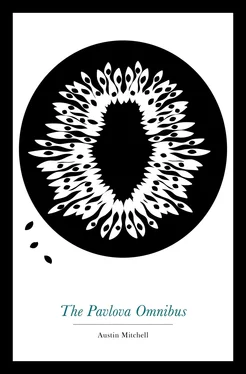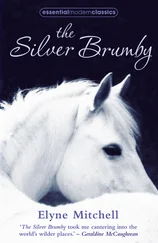Austin Mitchell - The Pavlova Omnibus
Здесь есть возможность читать онлайн «Austin Mitchell - The Pavlova Omnibus» — ознакомительный отрывок электронной книги совершенно бесплатно, а после прочтения отрывка купить полную версию. В некоторых случаях можно слушать аудио, скачать через торрент в формате fb2 и присутствует краткое содержание. Жанр: unrecognised, на английском языке. Описание произведения, (предисловие) а так же отзывы посетителей доступны на портале библиотеки ЛибКат.
- Название:The Pavlova Omnibus
- Автор:
- Жанр:
- Год:неизвестен
- ISBN:нет данных
- Рейтинг книги:5 / 5. Голосов: 1
-
Избранное:Добавить в избранное
- Отзывы:
-
Ваша оценка:
- 100
- 1
- 2
- 3
- 4
- 5
The Pavlova Omnibus: краткое содержание, описание и аннотация
Предлагаем к чтению аннотацию, описание, краткое содержание или предисловие (зависит от того, что написал сам автор книги «The Pavlova Omnibus»). Если вы не нашли необходимую информацию о книге — напишите в комментариях, мы постараемся отыскать её.
The Pavlova Omnibus — читать онлайн ознакомительный отрывок
Ниже представлен текст книги, разбитый по страницам. Система сохранения места последней прочитанной страницы, позволяет с удобством читать онлайн бесплатно книгу «The Pavlova Omnibus», без необходимости каждый раз заново искать на чём Вы остановились. Поставьте закладку, и сможете в любой момент перейти на страницу, на которой закончили чтение.
Интервал:
Закладка:
From the primary plant, young Kiwi-chile passes on to the intermediate school to reach puberty in decent purdah. He then enters a postprimary system divided into three parts—Catholic, Private or State. Catholic schools segregate the members of the faith and provide an inferior education suited to a minority of a seventh of the population. Private schools (the National Party at lessons) do much the same for the better-off. Most pay a nominal allegiance to a religious denomination and a more real one to the eternal values represented by the ANZ Bank. They are preparatory departments for Federated Farmers, providing boarding accommodation and reasonable restraint for country children. The more important, Christ’s, King’s and Wanganui Collegiate, are instant public schools, die-stamping little Englishmen under licence. Their female counterparts also produce some splendid chaps.
The more pretentious take English or religious names: St Margaret’s after the wife of the founder of F. W. Woolworth, Christ’s after the founder of the Church of England, Medbury Preparatory after the inventor of the hamburger. Most were founded in the mists of antiquity, like Southwell, starting in 1911 on endowment from the Sergei family, which still provides donations in the shape of a headmaster and children. Educational techniques which trained administrators for the British Empire and other Offshore Funds are applied by hand to a miscellaneous collection of offspring of farmers, lawyers and used-car salesmen (the country’s second oldest profession). This gives the well-off something to spend their money on besides overseas trips. It also guarantees that their offspring won’t be embarrassed by coeducation. All relatively harmless, since New Zealand is not an élitist society. The private schools can’t yet take in ESN children of the wealthy at one end and churn out directors for ICI (NZ) at the other.
Because the private schools use their privacy to uphold a traditional education, the state schools have to do the same so parents won’t divert their children en masse. As a new country, New Zealand is a great respecter of tradition and the schools which carry the most prestige are the most rigidly pedagogic. Places like Wellington Girls, Christchurch Boys and Waikukumukau Hermaphrodites set the tone. All the others have to try to keep back with them, so that parents don’t think their children are being deprived.
By and large, which most of our children are, Joe Soap and Julian Unilever go to the same school. This is so that they can both start with equal disadvantages in life. For the army the schools are an excellent preparation. For life, not so good. New Zealanders are a lackadaisical, easygoing people: they educate their children by formalised pedagogy. Their dress is sloppy and casual: they impose a school uniform designed to kill all sexual interest by skilfully relandscaping burgeoning teenage shapes into mobile marquees. An open, democratic society, New Zealand has an authoritarian education system. The teacher is society’s NCO, enforcing the virtues of obedience by corporal punishment or accrediting. Society is egalitarian, so the schools stream rigidly. Kiwis are a practical bunch of jokers, so the schools are obsessively academic. All this has been carefully thought out to nurture the latent schizophrenia in the Kiwi breast, programming him to feel guilty and uneasy about everything that is good. Puritan instinct demands that those who live in paradise should not enjoy it.
The doses of guilt aren’t equally shared out. Manual workers and the less intelligent build up antibodies to the system. It conditions them to a cynicism about an education so uniquely irrelevant to their life experience and about authority figures who transmit on such an alien frequency. They leave school at the earliest possible opportunity and make money on the wharves, or rather less as Prime Minister or Leader of the Opposition. For the rest of their lives they are defiantly anti-intellectual. With the middle classes, the education system has deeper penetration, processing them into Boy Scouts who spend the rest of their lives looking for a movement, in such substitutes as Lions or Jaycees. Unfitted to enjoy paradise, they become deeply suspicious of those who do. The worst affected cases go on to the teachers’ colleges, the technical institutes and the universities for a really concentrated dose of educational schizophrenia.
When you think of further education, the red brick, the white tile, or the Dulux ivory towers of Britain’s universities spring to mind. Forget it. New Zealand has 4.3 universities and a number of training colleges and technical institutes which between them take, say, ten per cent of school leavers. They are all finishing schools for various professions, a job training for those who can’t get it on the job. The lower grades—primary school teachers and lesser breeds without the law—go to the educational ghettos. The rest go to the universities, and the difference between the institutions is solely one of degree. The universities embrace not only Classics (production quota as set by the Development Conference, 34.5 a year) but also Physical Education and the Home Science School (the Dean of the Home Science School is the equivalent of your Warden of All Souls; the school’s main role at the moment is to ensure that doctors’ wives can cook). Flower arrangement would also be eligible for a degree course if the Women’s Division didn’t already do it so well. Being a practical people, the New Zealanders don’t like to train intelligence at large; they have no tradition of taking philosophy graduates and putting them in charge of the Department of Marine, or appointing experts in the romance languages to run New Zealand Breweries. Studies have to be relevant to a career. Like freezing works, universities must produce visible returns in an annual crop of frozen teachers, accountants and engineers.
The universities have several advantages. Because of the tradition of going to the nearest university rather than the best, a high proportion of students live at home. Thus lots of them concentrate money on essentials, rather than lavishing it on accommodation. Universities are open to a larger proportion of the population than is the case in Britain: entry conditions are easier. Everyone has the right to fail once they’re 21 and part-time study provides a people’s democracy degree.
Unfortunately these New Zealand institutions are manned by an alien fifth column. One third of the staff come from overseas, mainly from Britain, where universities are very different creatures. The most able British academics wouldn’t dream of coming to a country they regard as an academic outer Siberia. In 1959 I would have been hard put to get a job as assistant janitor at Battersea Polytechnic. In New Zealand I was a full lecturer. Promotion is so rapid that most people finish up as Associate Professor. Unfortunately their inability to get jobs in British universities makes importees more anxious and assertive about a university status they hold so tenuously.
A high proportion of the natives have also been corrupted by postgraduate training overseas. The most able are lost, unable to stand the loneliness of the long-distance intellectual and the lack of stimulus and excitement. The only section genuinely appreciative of the country’s traditions is the small but increasing number of Americans, bomb refugees, Vietnam protesters and people unwilling to buy a secondhand America from President Nixon. Since many of them are busily building bomb shelters, lobbying for peace or supporting student revolt they are collectively dismissed as insane, politically unstable or both.
With this exception, university staffs spend their time complaining because their intellectual gifts are not recognised by the community in general and Mr Muldoon in particular, lamenting at the government’s failure to pay them as much as American and British academics, and airing their highly developed God complexes on their students. The only way in which they resemble good New Zealanders is their nine to five work habits and their quiet domesticity in the better suburbs like Cashmere, of which the University of Canterbury poet said, ‘I will lift up mine eyes to the hills, whence cometh my staff’.
Читать дальшеИнтервал:
Закладка:
Похожие книги на «The Pavlova Omnibus»
Представляем Вашему вниманию похожие книги на «The Pavlova Omnibus» списком для выбора. Мы отобрали схожую по названию и смыслу литературу в надежде предоставить читателям больше вариантов отыскать новые, интересные, ещё непрочитанные произведения.
Обсуждение, отзывы о книге «The Pavlova Omnibus» и просто собственные мнения читателей. Оставьте ваши комментарии, напишите, что Вы думаете о произведении, его смысле или главных героях. Укажите что конкретно понравилось, а что нет, и почему Вы так считаете.












